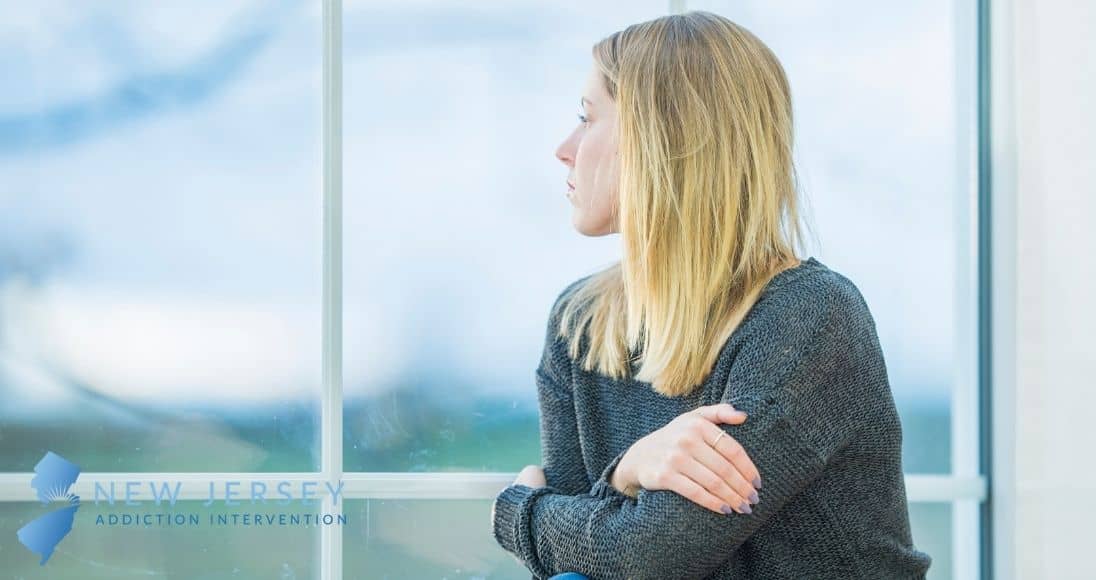Millions of people in the United States live with untreated addiction or substance use disorder. Up to 50% of people who struggle with addiction also live with a mental illness or mental health condition or a dual diagnosis.[1] Treating someone with a dual diagnosis can be more difficult than simply treating addiction or mental illness. Learning more about how mental illness and substance use disorders overlap can help us provide more effective treatment to people living with both conditions.
Researchers have been exploring the connection between certain personality disorders and addiction for several decades to try to understand both conditions better. It is clear that some forms of mental illness, including personality disorders, can affect a person’s likelihood of developing an addiction to drugs and alcohol. In fact, studies estimate that anywhere between 34-73% of patients who are treated for addiction also have a personality disorder.[2] One condition, called avoidant personality disorder (AVPD), is thought to be connected to substance abuse and addiction.
The symptoms of avoidant personality can cause people a great deal of stress and emotional discomfort, which can increase their likelihood of substance abuse. If you or a loved one has been diagnosed with avoidant personality disorder and a substance use disorder, you may want to explore the connection between these two conditions so you can find effective treatment.
Understanding Avoidant Personality Disorder (AVPD)
Most people feel shy or anxious in social situations from time to time. This is a normal part of being human. However, some people struggle with debilitating anxiety that prevents them from functioning well in their daily lives.
Avoidant personality disorder is a condition that is believed to affect about 2.5% of the adult population in the United States.[3] Some of the symptoms associated with avoidant personality disorder include:
- Discomfort in social situations
- Lack of depth in relationships because of a fear of rejection
- Avoiding doing something where they may look “silly” in public
- Avoids social interactions unless absolutely necessary
- Preoccupation with fear of criticism
- Low self-esteem–may believe they are inferior or unacceptable in some way
People with AVPD often fear social interaction so much that they become increasingly isolated as time goes on. Their fear and anxiety lead to physical and emotional stress. When left untreated, people with AVPD have an increased risk of developing an addiction to drugs or alcohol.
The Connection Between Avoidant Personality Disorder and Substance Abuse
When a person has both avoidant personality disorder and a substance use disorder, it is thought that the conditions exacerbate each other.[2] People with avoidant personality disorder tend to avoid most social interactions out of fear. They spend a great deal of time isolated. Even within a relationship, they may not feel comfortable enough to develop any real closeness or intimacy out of fear of being rejected. This isolation and loneliness can cause significant stress, anxiety, and depression. Without proper treatment, people may try to self-medicate with drugs and alcohol to dull the pain of these feelings.
Research from 2012 showed that about 46% of people being treated for substance abuse also had a personality disorder. Of that 46%, about 8% had avoidant personality disorder.[4]
Addiction and avoidant personality disorder share some characteristics. Both conditions involve feelings of shame, guilt, low self-esteem, feelings of inadequacy, and secrecy.
Does Avoidant Personality Disorder Lead to Addiction?
People who use substances like drugs and alcohol frequently or heavily are at risk of developing an addiction to them. People with untreated mental health conditions, including personality disorders, are more likely to use drugs or alcohol to self-medicate. In time, this can lead to an addiction.
The restriction, anxiety, shame, and poor self-image that characterizes avoidant personality disorder can lead to an overwhelming amount of stress. People may self-medicate with alcohol or drugs to dull the pain of loneliness, shame, or feelings of worthlessness that go along with this type of personality disorder. They may try to fill the emptiness of having no friends or shallow relationships by using substances. They may also begin to use drugs or alcohol to make themselves feel more comfortable in social situations or within their relationships. All of these factors can make someone with avoidant personality disorder more vulnerable to substance abuse and addiction.
Treating someone with a dual diagnosis can be difficult. For people to recover from addiction and avoidant personality disorder, people must receive treatment for their substance abuse and learn the social and coping skills they need to function more comfortably in social situations. This may include healthy stress management, learning how to develop attachment and friendships, and increasing their self-worth.
Find a Dual Diagnosis Treatment Center in New Jersey Today
If you or someone you love struggles with substance abuse, addiction, or a dual diagnosis, you are not alone. Effective addiction treatment is available. Reach out to the staff at New Jersey Addiction Interventions for more information about the programs we offer.
If you have been putting off getting the help you need, don’t wait another day. With the right treatment and support, anyone can recover from addiction and learn how to live a healthy, fulfilling life. Call today to speak to one of our admissions counselors about getting started on a life-changing treatment program.
References:
- https://www.drugabuse.gov/publications/research-reports/common-comorbidities-substance-use-disorders/part-1-connection-between-substance-use-disorders-mental-illness
- https://www.ncbi.nlm.nih.gov/pmc/articles/PMC6241194/
- https://www.ncbi.nlm.nih.gov/pmc/articles/PMC5848673/
- https://www.ncbi.nlm.nih.gov/pmc/articles/PMC3514215/
Medically Reviewed: January 24, 2022

All of the information on this page has been reviewed and verified by a certified addiction professional.

